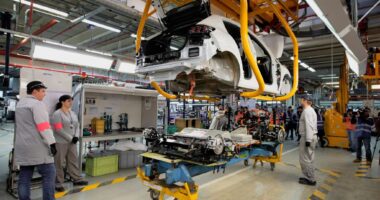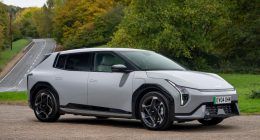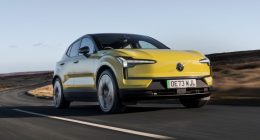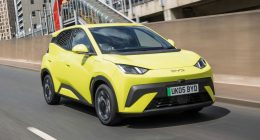New research has revealed manufacturers linked to the UK automotive industry have invested almost £11bn in electric vehicle research and development since 2011.
The figure also includes the production of zero-emission models and the battery packs that underpin them, according to the Society of Motor Manufacturers and Traders (SMMT).
Mike Hawes – the SMMT’s Chief Executive – says the automotive sector has “set out its intent” in switching to cleaner technologies and has challenged other stakeholders – including the British government – to match its commitment.
Given the figure does not include wider supply chain investment that is needed to build cars, vans, buses and lorries, the overall UK commitment of £11bn to electrification is thought to be even higher.
“The UK automotive industry has set out its intent – to meet the challenge of net zero – and has backed that ambition with cash, investing massively during Britain’s first electric decade,” said Mr Hawes.
Ten years ago, six models of electric car were available, accounting for less than one in 1,000 new car registrations. There are now more than 140 models on the market, with electric vehicles comprising more than one in six new cars and one in 28 vans registered.
Just one in 80 cars on the road, however, runs on electricity, with the UK aiming for one in three by 2030 as the government tries to meet its net zero ambitions.
In order to achieve that, the SMMT argues the public charging infrastructure must be significantly improved. At present, there is just one charger for every 32 plug-in hybrid cars in the UK compared with one for every 16 just 12 months ago. That is an average figure, however, with the picture said to be much bleaker depending on region.
“As we enter the second [decade], the stakes are higher, with some of the world’s toughest regulation coming, regulation that will seek to determine the pace of change in a market constantly buffeted by headwinds,” said Mr Hawes.
“But mandates on manufacturers alone will not drive the market. Delivering net zero needs a competitive industry and a competitive market.
“We need a holistic strategy with binding targets on chargepoint provision, attractive fiscal and purchase incentives, and a reliable, accessible and affordable user experience.
“We need a universal right to charge electric vehicles, for all drivers, wherever they live, wherever they travel and whatever their needs.”









